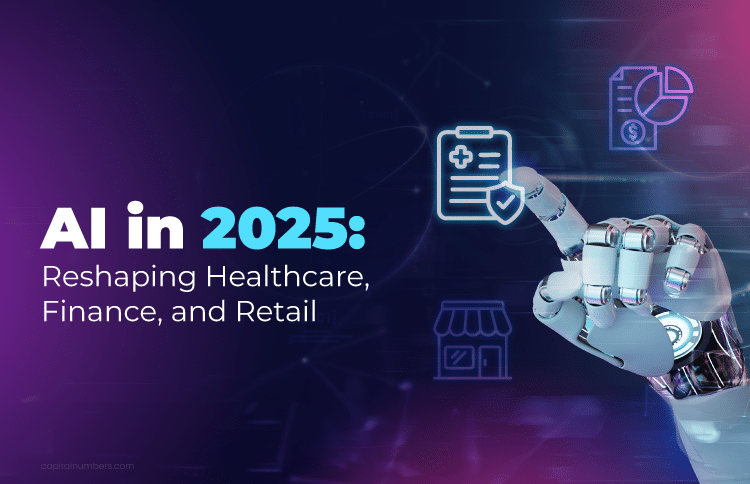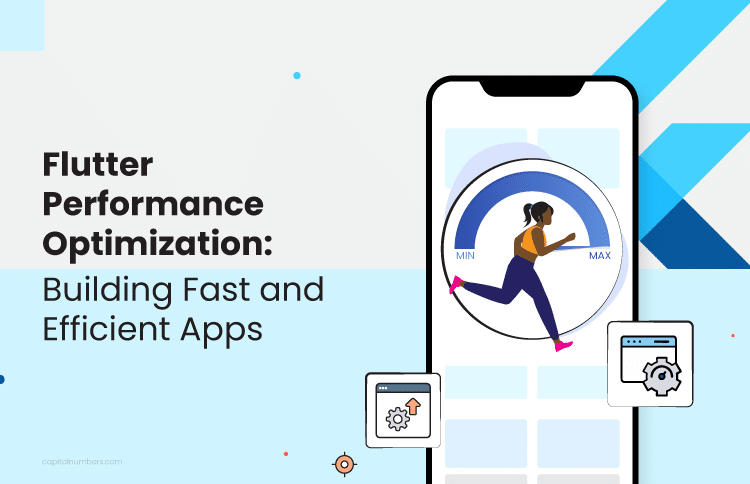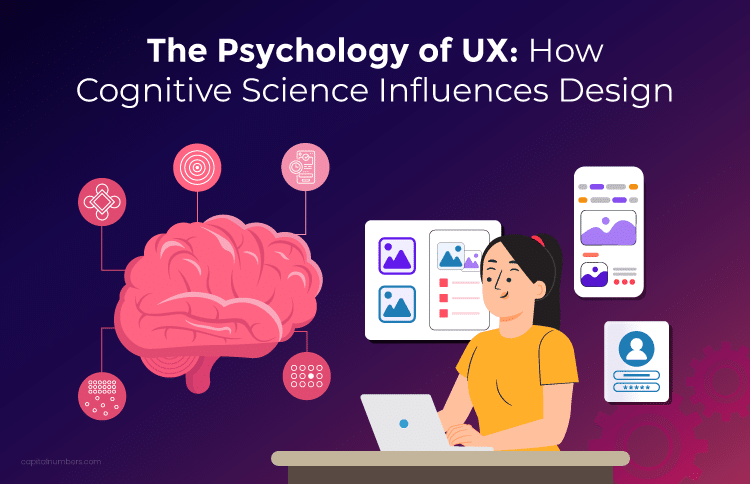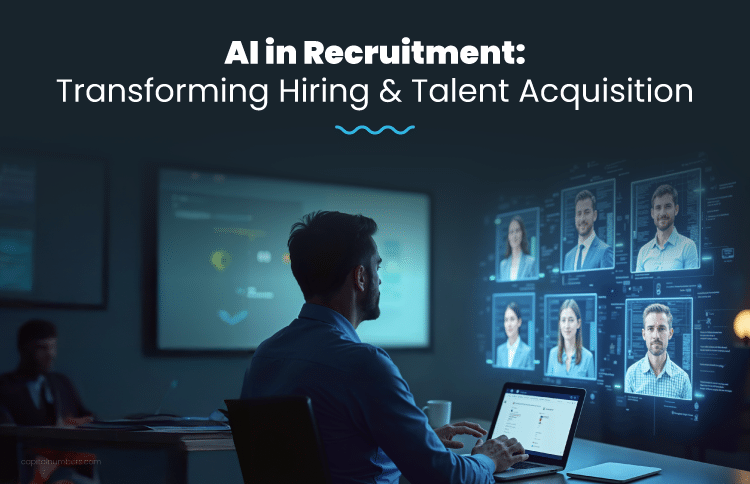AI in 2025: Reshaping Healthcare, Finance, and Retail
Table of Contents
Artificial Intelligence (AI) is rapidly changing how businesses operate across various industries. From automating simple tasks to making complex decisions, AI has become a key tool for improving efficiency and driving innovation.
As we move towards 2025, AI will play an even bigger role in reshaping industries, with businesses adopting AI-driven solutions to stay competitive.
In this blog, we will explore how AI will impact healthcare, finance, and retail by 2025. These industries are already seeing major shifts thanks to AI-powered solutions that improve service delivery, reduce costs, and enhance customer experiences.
We will also discuss how AI for business growth is becoming essential and how the impact of AI on industries will drive transformation in operations, decision-making, and customer engagement. Understanding these trends is crucial for businesses aiming to adapt and succeed in the future.
The Future of AI: What’s in Store for 2025?
By 2025, AI will be a core element of business strategy across all industries. Advancements in machine learning, deep learning, and neural networks will make AI smarter and more adaptable, helping businesses solve complex problems. Companies will use AI to improve predictions, automate tasks, and enhance customer experiences.
AI is no longer just for large companies; it is now essential for businesses of all sizes. With AI, companies can make better decisions, improve efficiency, and reduce costs, helping them stay competitive in an ever-changing market.
You May Also Read: How AI and Machine Learning Can Transform Your Business
How AI Will Reshape Healthcare by 2025
AI in healthcare is already making a big impact, and by 2025, its role will be even more significant. AI technologies like predictive analytics, diagnostics, and personalized medicine are changing the way doctors and healthcare providers deliver care. With AI, healthcare professionals can analyze large amounts of patient data to identify health risks earlier, make more accurate diagnoses, and create treatment plans tailored to each individual.
AI-powered solutions will also improve the speed and accuracy of diagnoses. For example, AI algorithms can quickly analyze medical images and flag potential issues like tumors or fractures that might otherwise be missed. This helps doctors make faster decisions, improving patient outcomes and saving lives.
Beyond patient care, AI will help streamline healthcare operations. AI will improve administrative tasks such as scheduling and managing medical records, making them more efficient and reducing human error. AI will also optimize supply chains, ensuring essential medicines and equipment are available when needed. Additionally, AI systems will enhance patient management by tracking progress and predicting future healthcare needs.
Looking ahead, the future of AI in healthcare is full of promise. By 2025, AI will be essential in making healthcare more effective, accessible, and affordable for everyone.
AI in Finance: How It Will Reshape the Industry by 2025
As we approach 2025, AI is set to radically transform the finance industry, making operations smarter, faster, and more efficient. AI is already transforming finance in meaningful ways, especially in risk management, fraud detection, and recommendation systems. AI can analyze vast amounts of financial data to identify patterns and risks that would be impossible for humans to spot. For instance, AI-powered systems can detect suspicious transactions in real time, reducing the risk of fraud and protecting both financial institutions and their customers.
AI is playing a key role in driving business growth in finance by bringing significant improvements. It enables automated financial planning, where algorithms help businesses and individuals develop more accurate and effective financial strategies. In banking, AI-powered tools analyze customer behavior to provide personalized recommendations for loans, savings, and investment options, improving customer experiences and building stronger relationships.
AI-powered solutions like chatbots, robo-advisors, and intelligent risk assessments are also helping financial institutions improve both customer experiences and operational efficiency. Chatbots provide 24/7 customer service, answering queries and resolving issues instantly, while robo-advisors offer automated, low-cost investment advice to customers. Intelligent risk assessment tools help financial institutions make better decisions about loans, investments, and other financial products, minimizing risks while improving profitability.
By 2025, emerging AI trends are set to transform how financial institutions connect with their customers. Predictive analytics, powered by AI, will help institutions anticipate market trends and refine investment strategies with greater accuracy. Additionally, AI will take personalized banking to the next level, offering services tailored to each customer’s unique needs. This deeper personalization will not only enhance customer experiences but also strengthen relationships and foster long-term loyalty.
You May Also Read: AI-Powered FinTech: The Future of Financial Software Development
AI in Retail: A Revolution in Customer Experience and Operations
AI is transforming the retail industry, revolutionizing how businesses interact with customers and manage operations. By 2025, its role will become even more prominent, enhancing personalized shopping, improving inventory management, and optimizing business strategies.
AI systems are already creating personalized shopping experiences by analyzing customer data to recommend products that match individual preferences. Retailers are using AI to manage inventory more efficiently, ensuring the right products are stocked at the right time to minimize waste and avoid shortages. AI also supports sales forecasting by predicting future demand based on customer behavior, seasonal trends, and market conditions, enabling smarter stocking and pricing decisions.
In addition to personalization, AI-powered tools like recommendation systems and virtual shopping assistants are transforming customer interactions. Recommendation systems analyze preferences to suggest relevant products, while virtual assistants guide customers, answer queries, and simplify the shopping process. Predictive analytics further helps retailers anticipate demand, adjust inventory, and align strategies.
AI is also crucial for business growth in retail. It improves efficiency by automating tasks such as customer support, stock management, and order fulfillment, reducing costs and boosting productivity. AI-driven pricing tools analyze trends, competition, and customer behavior to ensure products are competitively priced. Personalized promotions and services powered by AI build stronger customer loyalty, increasing satisfaction and retention.
By 2025, AI innovation in retail will continue to evolve. Retailers will provide hyper-personalized shopping experiences, smarter pricing strategies, and seamless omnichannel services. Advances in robotics, automation, and AI-driven supply chain management will further streamline operations. Retailers adopting these technologies will gain a competitive edge, deliver exceptional customer service, and drive sustainable growth.
You May Also Read: AI in eCommerce: Shaping the Future of Customer Engagement
The Cross-Industry Impact of AI in 2025
By 2025, AI will transform industries far beyond healthcare, finance, and retail, driving efficiency and innovation in sectors like manufacturing, logistics, and education.
In manufacturing, AI will power smart factories with automated production, predictive maintenance, and better supply chain management. Logistics will benefit from optimized route planning, faster deliveries, and improved inventory tracking, making operations smoother. In education, AI will enable personalized learning experiences, simplify administrative tasks, and engage students more effectively.
AI’s role is also expanding within businesses across various functions. In HR, AI simplifies hiring and employee management, while in marketing, it analyzes customer behavior, personalizes campaigns, and optimizes pricing strategies. By automating repetitive tasks and delivering valuable insights, AI helps companies make better decisions and stay competitive.
As AI evolves, its influence will reshape how industries operate, creating smarter processes, reducing costs, and unlocking new opportunities for growth and innovation.
Challenges for Businesses Adopting AI
Adopting AI comes with challenges that businesses need to address. One major hurdle is the high initial cost of AI solutions, including software, hardware, and employee training. These expenses can be especially tough for smaller businesses with tight budgets. Another issue is the shortage of skilled professionals in fields like machine learning, data science, and AI programming, which makes it hard to build a capable team. Additionally, businesses must handle data privacy carefully, ensuring they comply with laws and protect customer information from breaches.
Ethical considerations are another critical factor. Bias in AI algorithms can lead to unfair outcomes, especially in areas like recruitment or lending, if the system is trained on biased data. Transparency is also important – businesses need to make AI decisions understandable to customers. Moreover, AI’s role in automating tasks raises concerns about job displacement, requiring companies to plan for workforce adjustments and retraining employees.
How Businesses Can Tackle AI Adoption Challenges
As AI continues to shape the future, businesses must take steps to stay competitive and achieve sustainable growth. Here’s how companies can prepare for the opportunities and challenges of the AI era:
Embracing AI for Growth
To succeed in an AI-driven world, businesses need to be adaptable and open to innovation. This means being flexible with new technologies and finding ways to improve operations using AI. By integrating AI into areas like customer service, product development, and operations, businesses can streamline processes, discover new opportunities, and improve customer experiences. Encouraging an innovative mindset across the company will help teams adapt quickly, explore fresh ideas, and stay ahead of competitors.
Investing in AI Capabilities
Building strong AI capabilities requires thoughtful investment and planning.
- Infrastructure: Invest in technologies like cloud computing, AI software, and data engineering to support AI applications effectively.
- Skilled Workforce: Either hire AI specialists or train current employees to ensure the team has the necessary skills to implement AI solutions successfully.
- Expert Partnerships: Partner with a leading AI/ML development company to accelerate adoption and make strategic investments in the most impactful solutions.
Staying Updated on AI Trends
Keeping up with AI advancements is critical to staying relevant.
- Continuous Learning: Encourage ongoing education and training for employees to stay updated on AI technologies and practices.
- Tracking Emerging Technologies: Monitor innovations like automation, deep learning, and natural language processing to identify new tools and trends that can benefit your business.
- Networking: Participate in AI forums, industry events, and discussions with experts to gain insights and discover new opportunities.
Building for the Future
By investing in the right technologies, partnering with a leading AI software development company, upskilling teams, and staying informed about emerging trends, businesses can create a strong foundation for AI adoption. This will allow them to adapt to changes, capitalize on AI’s potential, and drive long-term growth and innovation in an increasingly AI-powered world.
Final Thoughts
Looking ahead to 2025, AI will keep transforming industries like healthcare, finance, and retail, creating new opportunities for innovation and growth. In healthcare, AI will improve how diseases are diagnosed and how patients are treated. In finance, it will boost fraud prevention and make customer service more efficient. Retailers will benefit from more personalized shopping experiences and better-managed operations. To stay competitive, businesses need to start adopting AI now and use its potential to drive success.
Ready to Transform Your Business with Capital Numbers’ AI/ML Development Services?
Get in touch with us today to discuss your project and discover how our AI/ML solutions can drive innovation and growth. Let’s shape the future of your business together!














